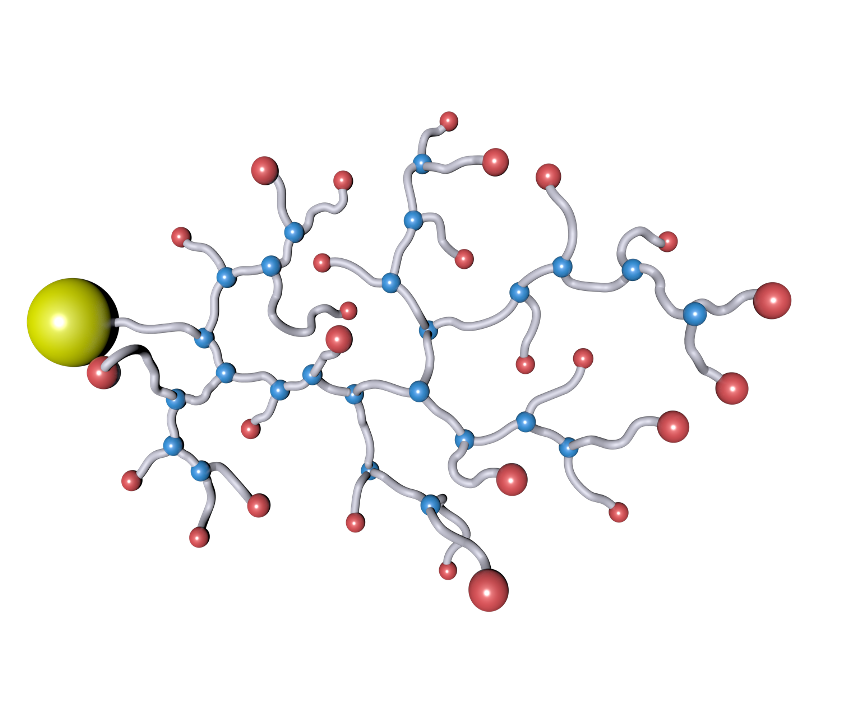Maximizing the Possible of Polymers: Discover the Complex Advantages and Practical Makes Use Of
In the huge landscape of product science, polymers attract attention as versatile compounds that have permeated nearly every element of modern-day life. Their application extends various sectors, from production and construction to health care and technology. The diverse advantages and useful usages of polymers remain to progress, supplying innovative services to intricate challenges. By exploring how polymers can boost item longevity, drive sustainability campaigns, transform medical care services, and lead the way for future technological innovations, we can discover a world of opportunities waiting to be taken advantage of.
Significance of Polymers in Modern Industries
Polymers play a pivotal role in modern industries, offering as functional products that drive advancement and efficiency throughout a wide array of fields. The electronics market advantages from the insulating residential or commercial properties of polymers, vital for producing circuit boards and electronic tools. Their versatility, longevity, and cost-effectiveness make polymers crucial in contemporary manufacturing procedures, fostering innovations and driving progress in different industries worldwide.
Enhancing Item Durability With Polymers
With a concentrate on longevity and resilience, incorporating innovative polymer innovations right into product style has actually ended up being a keystone of boosting sturdiness in modern-day production processes. Polymers provide a large range of properties that add to the general resilience of products. One crucial benefit is their resistance to rust, chemicals, and weathering, making them perfect for usage in various markets where exposure to extreme problems is common.
In addition, polymers can be tailored to fulfill specific resilience needs, allowing suppliers to customize items according to their meant use and anticipated life-span. By incorporating polymers into item parts, suppliers can boost stamina and influence resistance, minimizing the likelihood of breakage or wear with time.
Additionally, polymers are lightweight yet strong, providing resilience without including unnecessary weight to items. This particular is especially advantageous in industries such as aerospace and automobile, where lightweight products are essential for boosting gas efficiency and total performance.
Sustainability Developments With Polymer Innovation
In the realm of modern-day manufacturing and item design, the innovative application of polymers is driving considerable improvements in sustainability methods. Polymer technology plays an essential function in enhancing sustainability by providing options anonymous that reduce environmental effect throughout numerous sectors.
Furthermore, improvements in polymer innovation have led to the development of bio-based and renewable polymers, obtained from natural resources such as plants, that provide a more lasting alternative to standard petroleum-based plastics. These environmentally friendly polymers not only help in reducing dependence on nonrenewable fuel sources however additionally decrease greenhouse gas emissions during manufacturing. By integrating these innovative polymers into making procedures, firms can reduce their environmental impact and move in the direction of more sustainable methods, straightening with international initiatives to combat climate modification and promote a round economy.
Polymers in Health Care: Revolutionizing Medical Solutions

One of the vital locations where polymers are making significant strides is in the advancement of targeted medicine delivery systems. By enveloping medicines within polymeric nanoparticles or micelles, researchers can improve medication stability, improve bioavailability, and allow controlled launch, resulting in more effective therapy programs with minimized side results.
Moreover, polymers contribute in the field of regenerative medication, where they are utilized to develop scaffolds that mimic the extracellular matrix, providing support for cell growth and tissue regrowth. This technology holds immense guarantee for repairing harmed organs, promoting wound healing, and advancing individualized medicine methods.
Essentially, the integration of polymers in medical care is driving technology, boosting therapy efficiency, and eventually enhancing patient end results in means formerly believed unattainable.
Future Applications and Innovations in Polymer Modern Technology
Progressing at the center of clinical exploration, polymer modern technology continues to lead the way for groundbreaking applications and innovations shaping varied industries. Additionally, polymer nanocomposites are enhancing the mechanical and thermal buildings of products, leading to stronger and lighter elements in aerospace and vehicle sectors. Looking in advance, researchers are exploring the potential of shape-memory polymers for applications in robotics and biomedical devices, where products that can "remember" and change look at this web-site to their original forms try this web-site offer amazing possibilities for innovation.
Conclusion
